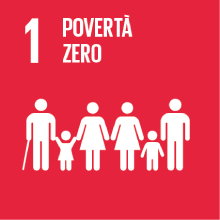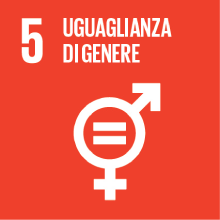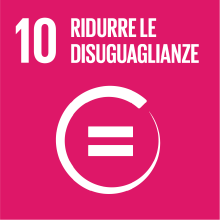MIGRATION AND CITIZENSHIP
- Anno accademico
- 2021/2022 Programmi anni precedenti
- Titolo corso in inglese
- MIGRATION AND CITIZENSHIP
- Codice insegnamento
- LM6410 (AF:359658 AR:187349)
- Lingua di insegnamento
- Inglese
- Modalità
- In presenza
- Crediti formativi universitari
- 6
- Livello laurea
- Laurea magistrale (DM270)
- Settore scientifico disciplinare
- SPS/08
- Periodo
- I Semestre
- Anno corso
- 1
- Spazio Moodle
- Link allo spazio del corso
Inquadramento dell'insegnamento nel percorso del corso di studio
The course is also offered to students from the LM programs “Lavoro, cittadinanza sociale, interculturalità” and "Crossing the Mediterranean: towards Investment and Integration" (MIM)
Risultati di apprendimento attesi
1) illustrate the main theoretical approaches to human mobilities in relation to global transformations, including climate change
2) identify the fundamental terminology and concepts used in migration studies and use the terms correctly in context
3) describe main issues from the history of international migrations, and their economic, social and political implications, in key geographical areas
4) critically analyse current academic and policy debates on migrations, and their relationship with the external social and natural environments in which they take place.
5) capacity to select and elaborate on relevant sources (secondary literature and empirical data) in order to provide a sounded and clear discussion of the course topics
6) effectively analyse and present in English (in writing and speaking) original research results, expanding on the core issues addressed by the course
Prerequisiti
Contenuti
Testi di riferimento
PDF versions of the selected articles/chapters will be provided by the teacher.
Modalità di verifica dell'apprendimento
1) A short paper to be submitted (by email) on the same day of the written examination. Students who want to prepare a paper have to submit a half-page abstract 1 month before the beginning of the examination session which they want to join. The paper has to be maximum 10 pages, Times New Roman size 11, spacing 1.5. The list of references (which does not count in the page-limit) has to be at the end of the paper and follow the MLA style.
Concerning the topic of your paper: it has to relate to one of the phenomena we discussed in class (including guest speakers' classes) and expand it through the analysis of a specific case study. As case study you can take, for instance: 1) the specific conditions and experiences of a migrants' group; 2) the stories told by one or more novelists or video-makers about migrant protagonists; 3) events and stories taking place in a specific city or geographical areas, etc. Please do not include cases based on your personal/family experience or on interviews because ethnographic research on migrations falls outside the scope of this course. Also, please remember that you are writing a research essay and not a policy brief or a report. This means that the selected case-study needs to be interpreted as embedded in one of the general theories and phenomena we discussed in class, showing that you master the state of the art literature on these topics and you can relate to the main research questions in this field. For this reason, the main tool to analyze your case-study will be the (Compulsory and Suggested) readings available on the Moodle. You need to show how you used them in your analysis, by quoting them in the appropriate ways.
2) The oral exam will consist of a discussion starting from the written paper, and later expanding to cover other aspects of the course program, with particular with reference to the Compulsory readings, in order to have a full assessment of the knowledge and abilities they have learned through the course.
Modalità di esame
Metodi didattici
All materials will be made available by the teacher in the moodle page of the course.
Students are invited to contribute with critical questions and comments to the classroom discussion.
Altre informazioni
On the basis of the latest regulations, there is no difference between students coming in person and those following online.
However, in order to be considered as 'attending' for my course you need to join at least 10 classes (online or in person). You don't need to write me to communicate your (online or in person) attendance, as I can automatically download lists with your names from the platforms.
The presentations in class scheduled for December 2021 have to be given in person, in the assigned dates
If you are in the 701 category, you are still exempt from physical attendance and you will have access to video recordings on Panopto.
My classes are very much based on personal interaction and group discussion which might be difficult to follow online. For this reason, I am strongly recommending all non-attending students, 701 students and students who attend only on-line to fix an appointment during my office hours to see whether I can suggest you some extra material to support you during your study.
CALENDAR FOR PAPERS’SUBMISSIONS
Here all deadlines you should keep in mind when preparing for the examination for this course, depending on the exam session (appello) you want to join.
Exam session(s) Winter 2022:
Deadline abstract: 20 December 2021
Deadline paper: 10 January 2022
Oral examination(s): to be announced
Exam session Summer 2022:
Deadline abstract: 1° May 2022
Deadline paper: 30 May 2022
Oral examination: to be announced
Exam session Fall 2022:
Deadline abstract: 10 July 2022
Deadline paper: 22 August 2022
Oral examination: to be announced
Obiettivi Agenda 2030 per lo sviluppo sostenibile
Questo insegnamento tratta argomenti connessi alla macroarea "Povertà e disuguaglianze" e concorre alla realizzazione dei relativi obiettivi ONU dell'Agenda 2030 per lo Sviluppo Sostenibile




